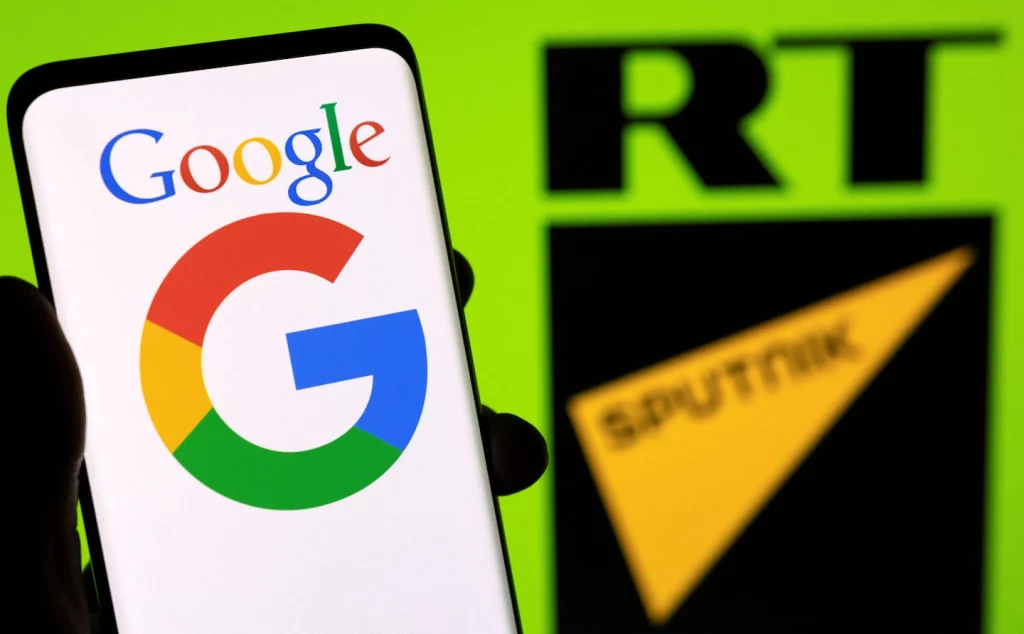
These steps are likely to spark retaliation from Russia, which has already imposed restrictions on social media services in response to previous actions by companies to limit the Kremlin’s ability to spread disinformation and propaganda about the invasion of Ukraine.
“Due to the ongoing war in Ukraine, we are blocking YouTube channels connected to RT and Sputnik across Europe, effective immediately,” Google Europe said in a tweet. “It will take a long time to ramp up our systems. Our teams continue to monitor the situation around the clock to take swift action.”
State media RT and Sputnik have relied on American social networks, as well as Chinese-owned TikTok, to gain massive followers and reach audiences beyond Russia’s borders. The RT channel on Facebook has more than 7 million followers, although the number of followers in the European Union is not clear. RT’s YouTube account has 4.65 million followers in English and 5.94 million in Spanish. RT and Sputnik also operate prominent TV channels and radio stations in many countries.
But Silicon Valley companies have long been reluctant to scale back state-owned media, even as mouthpieces for a foreign government’s distorted worldview. Instead, they chose to label the media as state media.
At the start of the Russian invasion of Ukraine, companies continued to validate individual pieces of content and resisted calls for an outright ban.
Disinformation has spread from Russian state-backed media, including misleading articles alleging that Ukraine’s armed forces have attacked civilians or attempted to destroy critical infrastructure in separatist regions or in Russia, according to research from the Oxford Internet Institute at Oxford University. At least 30 articles have speculated that Ukraine may have started or plan to develop nuclear weapons, warn of “what nuclear bombs lead to in the hands of the far right,” or claimed that Ukrainian President Volodymyr Zelensky had a “dangerous nuclear imagination,” the Oxford found . Russian state media have also attempted to paint a picture of Ukraine as being associated with far-right organizations and the Nazis, even though Zelensky is Jewish.
But pressure on social media companies to use their power as vigilantes quickly escalated. First, the Ukrainian government asked companies to block channels within its borders, and the companies complied.
But Russia is increasingly dealing with tech giants, pressuring them to allow state media on their platforms. The country’s internet censorship said on Tuesday morning that it had sent messages to YouTube and TikTok, asking them to immediately lift restrictions in Europe on RT and Sputnik.
The messages came days after Russia began slowing traffic to Facebook’s services within the country in retaliation for validation of state media reports, according to the company. Twitter also said it is restricted to some people in Russia.
On Friday, Facebook and YouTube banned ads from Russian state media, an attempt to prevent companies from making revenue from content supporting the invasion.
On Monday, Facebook and TikTok said they would close access to RT and Sputnik in Europe. The Facebook announcement came in tweet From its head of global affairs, Nick Clegg. TikTok confirmed its decision to The Washington Post late Monday.

“Travel specialist. Typical social media scholar. Friend of animals everywhere. Freelance zombie ninja. Twitter buff.”





More Stories
Macron rejects left-wing bid to appoint PM before Olympics
Dogs can smell human stress and make decisions accordingly, study says: NPR
Hamas and Fatah sign declaration to form future government as war rages in Gaza